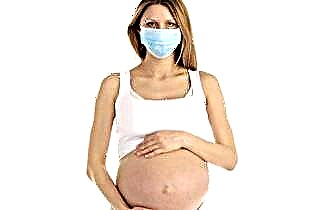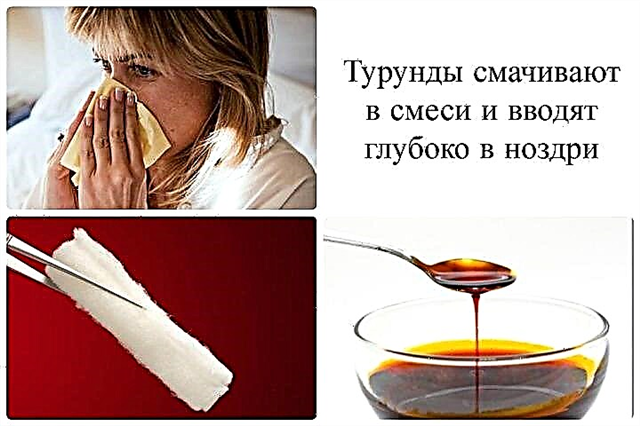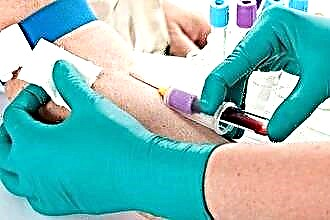An increase in body temperature is itself considered a warning sign. The appearance of other symptoms only intensifies this anxiety, and the person tries to analyze what caused them and how to get rid of them. One of the undesirable combinations is a dry cough and a temperature of 38 in an adult. What are the reasons for concern in this case, and what can be done to improve the situation?
Causes of fever when coughing
 Immediately, we note that we are talking about the manifestation of the body's ability to respond to changes in the environment, and an increase in temperature is one of the mechanisms of self-regulation. The condition of tissues and organs is also important. The most common example of a dry cough with fever is ARVI. With this disease, the body temperature rises to 38 degrees, accompanied by a cough. This is due to the fact that the body is actively fighting against pathogens. Such symptoms are often observed at the beginning and with other problems, including:
Immediately, we note that we are talking about the manifestation of the body's ability to respond to changes in the environment, and an increase in temperature is one of the mechanisms of self-regulation. The condition of tissues and organs is also important. The most common example of a dry cough with fever is ARVI. With this disease, the body temperature rises to 38 degrees, accompanied by a cough. This is due to the fact that the body is actively fighting against pathogens. Such symptoms are often observed at the beginning and with other problems, including:
- flu;
- angina;
- rhinitis;
- bronchitis;
- pneumonia;
- measles;
- scarlet fever;
- tracheitis.
In total, more than 50 reasons for the appearance of cough and the addition of an elevated temperature to it are currently known to medicine.
Any of these diseases is accompanied by characteristic signs that allow during the examination to suggest the most likely causes. So, with ARVI, a runny nose, a dry cough with a temperature of 38 are almost always observed. Moreover, at the initial stage of the disease, bronchial spasms bring pain, and fever may not appear immediately. With his arrival, the cough takes on a wet form, and at this stage coughing begins, which already indicates an attempt by the body to get rid of pathogens.
If the rise in temperature continues against the background of coughing, this may indicate the development of sinusitis. Here, additional symptoms are considered to be dry throat, runny nose with mucus with pus, a feeling of a stuffy nose, pain in the maxillary sinuses. In this case, the sense of smell is often disturbed, swelling of the eyelids and cheeks appears.
 The presence of a dry cough with a temperature of 37 is also noted with allergies... Symptoms arise as a reaction to harmful substances, poplar fluff, animal hair, tobacco smoke, strong and annoying odors. However, with allergies, temperatures above 37 degrees do not happen. But with it, a runny nose, signs of intoxication of the body, and skin rashes also appear. In this case, the eyes can constantly "cry".
The presence of a dry cough with a temperature of 37 is also noted with allergies... Symptoms arise as a reaction to harmful substances, poplar fluff, animal hair, tobacco smoke, strong and annoying odors. However, with allergies, temperatures above 37 degrees do not happen. But with it, a runny nose, signs of intoxication of the body, and skin rashes also appear. In this case, the eyes can constantly "cry".
The combination of cough and fever can be observed in other diseases, and the second factor indicates an inflammatory process. Therefore, with such symptoms, you should immediately consult a doctor and undergo an examination.
This also applies to those cases when treatment was carried out, for example, tonsillitis, sinusitis or tonsillitis. It is possible that it was not completely cured, the respiratory tract has not been cleared of infection and continues to suffer from the accumulating mucus.
When is emergency action needed?
According to doctors, with a dry cough and temperatures up to 38 degrees, antipyretic drugs are not needed. Up to this point, the body has the ability to cope with the disease on its own. You can help him with a warm drink. It is recommended to start drug treatment if there is a higher temperature and dry cough. Here it is necessary to call an ambulance team, and if this is impossible for any reason, drink an antipyretic drug.
To lower the dangerous temperature in an adult, rubbing with a mixture (1: 1) of vodka and water or water and vinegar, taken in the same proportion, helps. But here it must be borne in mind that the vinegar in the rubdown is not suitable for people with diabetes.
 The child can be wrapped in a wet but well-wrung sheet, and given unsweetened compote or fruit drink. Drinking is a must, as at high temperatures moisture is quickly lost and dehydration can occur.
The child can be wrapped in a wet but well-wrung sheet, and given unsweetened compote or fruit drink. Drinking is a must, as at high temperatures moisture is quickly lost and dehydration can occur.
What is suitable for the temperature to drop, and the measures taken do not harm? Please note the following:
- one-component antipyretic drugs based on paracetamol or ibuprofen (Paracetamol, Panadol or Efferalgan);
- wiping with a napkin dipped in cool water;
- tea with honey / raspberry /;
- warm drinks in large quantities;
- herbal decoctions, which help to lower the temperature and separate sputum.
For pregnant women and children under 15 years of age, it is better to use "Paracetamol" as a drug to lower the temperature - it lowers the temperature, relieves pain, moreover, the temperature normalizes gradually, and the effect remains for a long time. The baby is more suitable for "Ibuprofen" (it can be taken no more than 4 times a day).
You should not get carried away with antipyretic drugs with a large number of components, where paracetamol is presented in a small volume ("Pharmcitron", "Coldrex", "Teraflu"). Cautions also apply to Aspirin and Analgin - they increasingly lead to unwanted reactions.
With regard to emergency measures, some of them are considered controversial. One of them is as follows. It is necessary to free the body from clothes, wipe it with vodka (alcohol), and lie down for 5-10 minutes without covering it with a blanket. During this time, the alcohol evaporates and the temperature drops. If, after rubbing, you cover yourself with at least a sheet, then the body will begin to heat up, and the condition will worsen.
About compresses, wraps and other measures
 For compresses, you can take ordinary cool water or a decoction of yarrow (mint). To prepare it, you need to place 2 tablespoons of raw materials in a suitable dish (enamel, glass, porcelain), pour in ordinary unboiled water, put in a water bath and, stirring, heat for 15 minutes. After the broth has cooled, it should be filtered and used for compresses. We moisten terry or cotton napkins in it and apply them to the wrists, temples, forehead, and if a cotton sheet is used, we do a wrap. The compresses or bed sheet should be changed every 10 minutes until the body temperature is close to normal.
For compresses, you can take ordinary cool water or a decoction of yarrow (mint). To prepare it, you need to place 2 tablespoons of raw materials in a suitable dish (enamel, glass, porcelain), pour in ordinary unboiled water, put in a water bath and, stirring, heat for 15 minutes. After the broth has cooled, it should be filtered and used for compresses. We moisten terry or cotton napkins in it and apply them to the wrists, temples, forehead, and if a cotton sheet is used, we do a wrap. The compresses or bed sheet should be changed every 10 minutes until the body temperature is close to normal.
A very effective antipyretic agent that can be used for both adults and children is the so-called hypertonic solution. You should mix 250 ml of warm boiled water and 2 level teaspoons of salt. Take when salt dissolves. Children from 6 months to one and a half years old can use no more than 100 ml of ready-made solution, at the age of 2-3 years - 200 ml.
Sometimes, with a combination of cough and high fever, vomiting appears, and in this case, drugs in the form of drugs or oral agents are useless, but it is necessary to relieve fever and reduce inflammation. Here, the best option is the use of rectal suppositories. It is better to use paracetamol or ibuprofen-based suppositories.
In the absence of medicinal suppositories, you can take an antipyretic pill, grind it to a powdery state, dissolve in 100 ml of warm boiled water. This solution is used for an effective procedure - enemas. Suppositories and enemas have an almost instant effect.
Even if you can quickly lower your body temperature and reduce cough, you need to see a doctor. In this case, you should inform him about all measures taken independently. As a result of examination and examination, the true cause of the onset of symptoms will be established, and effective treatment will be prescribed.



